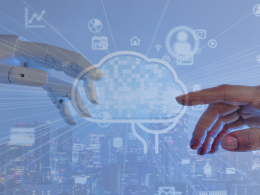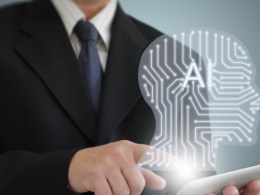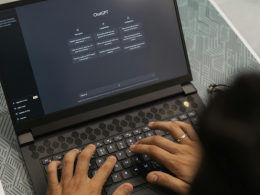Is your personal data safe in the digital realm?
How do organizations protect their sensitive information from cybercriminals?
In an age where technology evolves rapidly, so do the tactics of cyber threats. As the cyber battlefield intensifies, the role of Artificial Intelligence (AI) in cybersecurity becomes increasingly vital.
Is AI Transforming the Battle Against Cyber Threats?
In this blog, we delve into the fascinating intersection of AI and cybersecurity and how it’s shaping the battle against cyber threats.
Let’s dive deeper into each topic to explore the role of AI in cybersecurity and the challenges it addresses:
1. Are Traditional Cybersecurity Measures Enough?
Traditional cybersecurity measures, such as firewalls and antivirus software, have been crucial in protecting digital assets for years. However, they have limitations. Cyber threats have evolved from basic malware to sophisticated attacks like zero-day exploits and social engineering.
Traditional defenses often struggle to keep pace with these dynamic threats. Here’s where AI comes in. It provides a layer of defense that is adaptive and proactive. AI systems can learn from historical data, identify patterns, and detect anomalies in real time, helping to thwart advanced cyberattacks that might go undetected by traditional measures.
2. How Does AI Enhance Cybersecurity?
AI enhances cybersecurity through several key mechanisms:
- Behavioral Analysis: AI can analyze user and network behaviors, allowing it to recognize deviations from normal patterns. For example, if an employee suddenly starts accessing sensitive data they’ve never accessed before, AI can flag this as a potential threat.
- Advanced Threat Detection: AI can identify complex threats like advanced persistent threats (APTs) that involve stealthy, long-term attacks on an organization’s systems.
- Automated Response: AI can respond to threats in real time, automatically blocking suspicious activities or isolating compromised devices to prevent the spread of malware.
- Continuous Monitoring: AI doesn’t sleep. It provides 24/7 monitoring, ensuring that threats are detected and addressed around the clock.
3. Is AI the Ultimate Weapon Against Cyber Threats?
While AI is a potent tool in the cybersecurity arsenal, it’s not a standalone solution. Cybersecurity is a multifaceted field that requires a holistic approach.
AI can significantly enhance security, but it must work in conjunction with skilled human professionals who can interpret AI-generated alerts, investigate incidents, and adapt defenses to emerging threats. A human-AI partnership is the most effective strategy for addressing cyber threats.
4. What Are Some Key AI Applications in Cybersecurity?
AI applications in cybersecurity are diverse and include:
- Endpoint Protection: AI can provide endpoint security by analyzing device behavior and detecting and mitigating threats on individual devices.
- Network Security: AI can monitor network traffic to identify intrusions, unusual patterns, and signs of compromise.
- Email Security: AI can analyze email content and sender behavior to identify phishing attempts and malicious attachments.
- User and Entity Behavior Analytics (UEBA): AI can profile user and entity behavior to detect insider threats and compromised accounts.
- Predictive Threat Intelligence: AI can analyze global threat data to predict emerging threats and vulnerabilities.
5. What Are the Challenges of AI in Cybersecurity?
AI in cybersecurity is not without challenges:
- Adversarial Attacks: Cybercriminals are using AI to create attacks specifically designed to fool AI systems, making them less effective.
- Privacy Concerns: AI-powered monitoring and data analysis raise privacy concerns. Striking the right balance between security and privacy is an ongoing challenge.
- Lack of AI Expertise: There is a shortage of professionals with expertise in both AI and cybersecurity. Bridging this skills gap is essential for maximizing the potential of AI in cybersecurity.
6. The Future of AI in Cybersecurity
The future of AI in cybersecurity holds immense promise. We can expect to see more AI-driven threat intelligence platforms that provide organizations with real-time threat data and predictive analytics. Autonomous response systems that can take immediate action to mitigate threats will become more sophisticated.
Additionally, the collaboration between AI and human cybersecurity experts will become increasingly seamless, allowing organizations to stay ahead of the evolving landscape of cyber threats.
AI is not just an asset in the battle against cyber threats; it’s becoming a necessity. As technology advances, the synergy between AI and cybersecurity will be paramount in safeguarding our digital world from evolving and ever-present threats.
In the ever-evolving landscape of cyber threats, AI is a formidable weapon. It’s transforming cybersecurity from a reactive approach to a proactive one.
While AI is a vital asset, organizations must remain vigilant and invest in AI expertise to stay ahead in the unceasing battle against cyber threats. As technology marches forward, the partnership between humans and AI will be pivotal in safeguarding our digital world.
Ready to Dive into the World of Data Science and AI?
 Pin
PinJoin Accredian’s Executive Program in Data Science & AI in Partnership with IIT Guwahati Today and Unlock Limitless Possibilities!






